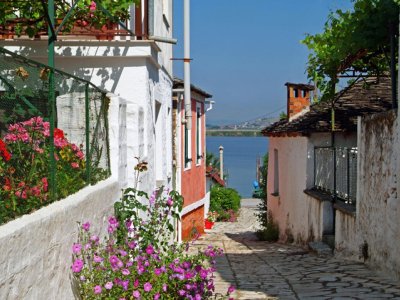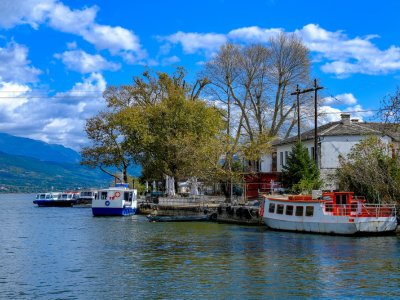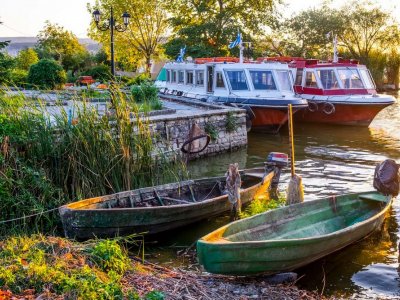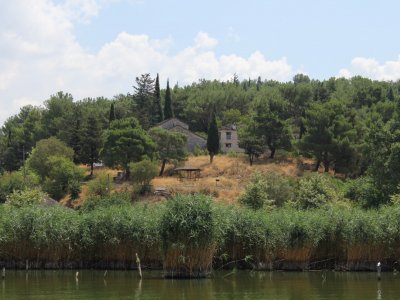The Island of Ioannina

The island of Pamvotida is an integral part of the history of the city of Ioannina: it has been associated with the history and death of Ali Pasha. Already, however, from the Byzantine and post-Byzantine period, organized life on the island is witnessed, focusing on the eight monastic complexes.
The Island of Ioannina
Today the island is inhabited, which is seldom phenomenon worldwide, by 100 families who are all occupied with tourism and fishing. It’s connected with the city of Ioannina by small boats which cross every half hour in the summer and every hour in winter. On the island there are shops with folk art items and restaurants which serve fishes, eels, frog-legs e.t.c.
It represents an important pole of touristic development of Ioannina.
The island in the Pamvotida lake is an inseparable part of the history of Ioannina: it is related with the history and the death of Ali Pasha.
There are evidence already, from the Byzantine and Post-Byzantine period, of organized living on the island based on the eight monastery compounds.
The monastery Saint Nicholaos Philanthropinon (1292), Saint Nicholaos, also Diliou or Stratigopoulou, monastery Eleousis or Saint Nicholaos Goumaton (15th century), monastery of Metamorphosis Sotiros, compounds that are located on the north west side of the island and monastery Profiti Elia on the top of the hill, the monastery Kimiseos Theotokou and at last the monastery Saint Panteleimon. In the cells of this last monastery still exist the bulletholes that were fired against Ali Pasha when he tried to rescue himself from the siege by Hoursit Pasha.
In these monasteries and especially in the monastery of Saint Nicholaos Philanthropinon are being preserved wall paintings of splended art. It is remarkable that in the above monastery there are full body wallpaintings of seven ancient philosophers as Plato, Solon, Aristotelis, Plutarch, Thoukididis, Apollonius and Hilon.








